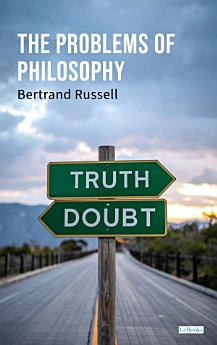The Problems of Philosophy
About this ebook
Since its publication, The Problems of Philosophy has been celebrated for its clarity of expression and ability to make abstract concepts intelligible to general readers. Its exploration of universal questions such as what can be known, how we acquire knowledge, and the role of philosophy in clarifying our assumptions has ensured its place as a foundational text in philosophical education. Russell's structured argumentation and illustrative examples continue to resonate with students and thinkers, offering timeless insights into the pursuit of truth.
The book's enduring relevance lies in its capacity to illuminate the fundamental problems that underlie human understanding and intellectual exploration. By examining the principles that guide knowledge and perception, The Problems of Philosophy invites readers to reflect on their own beliefs, the grounds for certainty, and the philosophical underpinnings of science and common sense.
About the author
Bertrand Russell (1872-1970) was a British philosopher, logician, mathematician, and social critic, widely recognized as one of the most influential thinkers of the 20th century. Born in Trellech, Wales, Russell made groundbreaking contributions to various fields, especially in analytical philosophy, logic, and the philosophy of mathematics. His extensive writings on social, political, and moral issues also established him as a leading public intellectual and peace activist of his time.
Russell's intellectual career spanned multiple disciplines. He is best known for his work in logic and analytical philosophy, particularly through his co-authorship of Principia Mathematica (1910-1913) with Alfred North Whitehead. This monumental work aimed to ground all mathematical truths in logical foundations, revolutionizing the study of logic and mathematics.
Russell's work had a profound impact on the development of modern logic, the philosophy of language, and analytic philosophy. He influenced an entire generation of philosophers, including Ludwig Wittgenstein, who studied under him at Cambridge. His approach combined rigorous logical analysis with a concern for clarity and precision, laying the groundwork for much of contemporary analytic philosophy.
In addition to his academic contributions, Russell was an outspoken social critic, opposing imperialism, advocating for sexual freedom, and campaigning against nuclear weapons. His activism earned him both admiration and controversy; he was imprisoned in 1918 for his pacifist stance during World War I and later led protests against nuclear proliferation during the Cold War.





